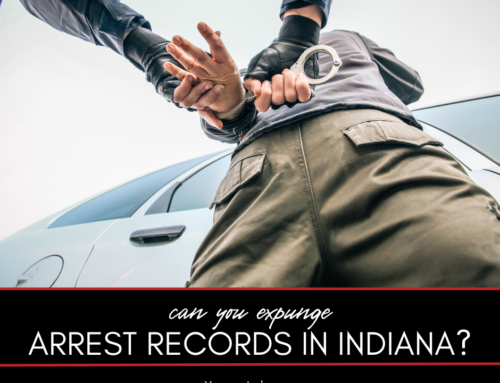
Having a criminal record can be a hindrance in many aspects of life, from finding employment to obtaining a loan. Expungement offers a chance to clear one’s record and move forward with a clean slate. In Indiana, the process of expungement is regulated by state laws. Understanding the process can help you make an informed decision. This guide answers frequently asked questions about expungements in Indiana and guides you through the process.
What is an Expungement?
Expungement is a legal process that allows you to have a criminal conviction removed from your criminal record. Once your record is expunged, it will not show up in most background checks, giving you a fresh start.
Who is Eligible for an Expungement in Indiana?
Not all convictions are eligible for expungement in Indiana. The eligibility criteria depend on the type of crime committed and the time that has passed since the conviction.
What Convictions Can be Expunged in Indiana?
In Indiana, most non-violent, non-sexual convictions can be expunged, including misdemeanors and some felonies. However, certain crimes, such as violent crimes, sex crimes and crimes involving firearms, are not eligible for expungement.
Related: 5 things to ask your expungement lawyer
What is the Expungement Process in Indiana?
The process of expungement in Indiana involves filing a petition with the court, and if granted, the court will order the sealing of your criminal records. Here are the steps involved in the expungement process in Indiana:
- Determine Eligibility: The first step is to determine if you are eligible for an expungement. You can do this by consulting with an attorney or using online resources.
- Obtain Criminal Records: You will need to obtain a copy of your criminal records from the Indiana State Police.
- File the Petition: You will need to file a petition for expungement with the court where you were convicted.
- Wait for a Hearing: After you file the petition, the court will set a hearing date, and you will be required to attend.
- Attend the Hearing: At the hearing, you will need to make a case for why your record should be expunged.
- Wait for the Court’s Decision: After the hearing, the court will make a decision on your petition, and if approved, your record will be expunged.
How Long Does the Expungement Process Take in Indiana?
The expungement process in Indiana can take anywhere from several months to a year, depending on the backlog in the court system. It’s important to be patient and follow the process closely to ensure a successful outcome.
Why Hire an Expungement Attorney?
While it is possible to file for an expungement on your own, hiring an expungement attorney can make the process easier on you. An attorney can help you determine your eligibility, file the petition, and represent you in court if necessary. They can also help you navigate the process and provide legal advice.
What Happens After the Expungement is Approved?
Once your expungement is approved, your criminal records will be sealed, and they will not show up in most background checks. You can legally deny the existence of the expunged offense. However, there are some exceptions to this rule, such as for law enforcement agencies or certain government entities, who still have access to your record.
Related: 7 ways your criminal record can come back to bite you
What Happens After the Court Approves Your Petition?
Once the court approves your petition for expungement, the court will order the destruction of your arrest records, court records, and any other relevant documents related to your arrest or conviction. However, it’s important to note that expungement does not erase your criminal record entirely, as some agencies and organizations may still be able to access it.
What Problems Can You Encounter During the Expungement Process?
The expungement process can be complicated, and it’s important to be aware of the potential pitfalls you might encounter along the way. Some common pitfalls include not being eligible for expungement, failing to provide sufficient evidence to support your petition, and having a backlog of cases that cause delays in processing your petition. Additionally, you may have to pay fees associated with filing for expungement and hiring an attorney, which can be expensive.
Related: Can you expunge your juvenile records in Indiana?
Why Should You Work With an Expungement Lawyer in Indiana?
Working with an experienced expungement attorney in Indiana can help increase your chances of having your criminal record expunged. An attorney can help you navigate the complex legal process and ensure that you meet all of the eligibility requirements for expungement. They can also help you prepare and file your petition, represent you in court, and advocate on your behalf.
Expunging your criminal record in Indiana can provide you with a fresh start and help you move forward with your life. However, it’s important to understand the requirements and potential pitfalls associated with the expungement process. If you’re considering expunging your criminal record, it’s highly recommended that you work with an experienced expungement attorney to increase your chances of success.
Do You Need to Talk to an Indiana Expungement and Sealing Attorney?
If you’re ready for a fresh start, we may be able to help. Call us at 317-647-5476 or fill out the form below for a free consultation on expungement. We’re here to answer your questions and get you the fresh start you deserve.













